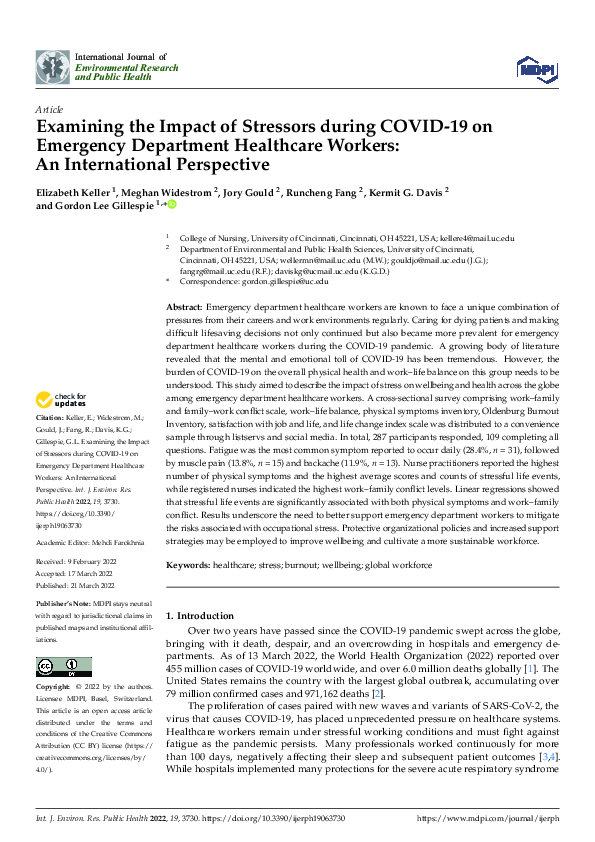Examining the impact of stressors during COVID-19 on emergency department healthcare workers: an international perspective

Keller, Elizabeth ; Widestrom, Meghan ; Gould, Jory ; Fang, Runcheng ; Davis, Kermit G. ; Gillespie, Gordon Lee
International Journal of Environmental Research and Public Health
2022
19
6
3730
epidemic disease ; Emergency medical service ; healthcare worker ; stress ; burnout ; comparison
Psychosocial risks
https://doi.org/10.3390/ijerph19063730
English
Bibliogr.;Statistics
"Emergency department healthcare workers are known to face a unique combination of pressures from their careers and work environments regularly. Caring for dying patients and making difficult lifesaving decisions not only continued but also became more prevalent for emergency department healthcare workers during the COVID-19 pandemic. A growing body of literature revealed that the mental and emotional toll of COVID-19 has been tremendous. However, the burden of COVID-19 on the overall physical health and work–life balance on this group needs to be understood. This study aimed to describe the impact of stress on wellbeing and health across the globe among emergency department healthcare workers. A cross-sectional survey comprising work–family and family–work conflict scale, work–life balance, physical symptoms inventory, Oldenburg Burnout Inventory, satisfaction with job and life, and life change index scale was distributed to a convenience sample through listservs and social media. In total, 287 participants responded, 109 completing all questions. Fatigue was the most common symptom reported to occur daily (28.4%, n = 31), followed by muscle pain (13.8%, n = 15) and backache (11.9%, n = 13). Nurse practitioners reported the highest number of physical symptoms and the highest average scores and counts of stressful life events, while registered nurses indicated the highest work–family conflict levels. Linear regressions showed that stressful life events are significantly associated with both physical symptoms and work–family conflict. Results underscore the need to better support emergency department workers to mitigate the risks associated with occupational stress. Protective organizational policies and increased support strategies may be employed to improve wellbeing and cultivate a more sustainable workforce."
Digital
The ETUI is co-funded by the European Union. Views and opinions expressed are however those of the author(s) only and do not necessarily reflect those of the European Union or the ETUI.